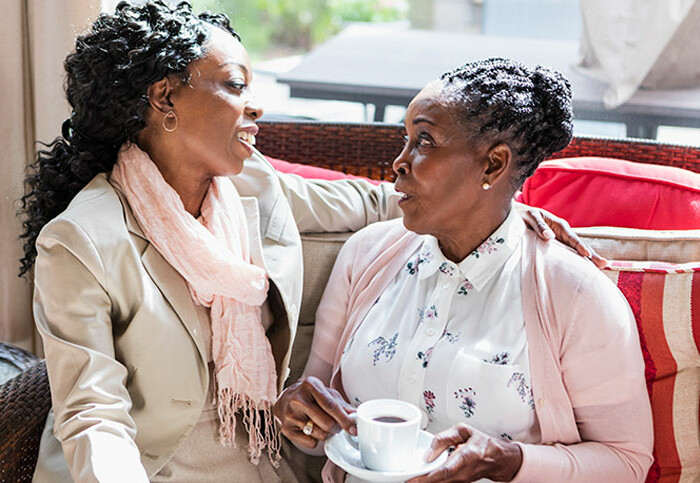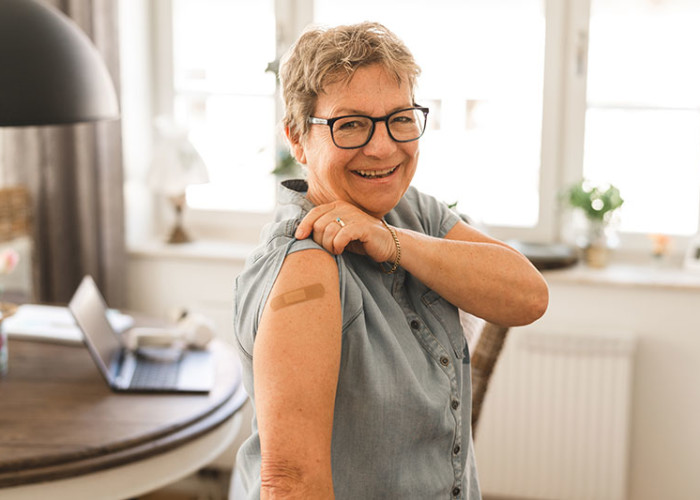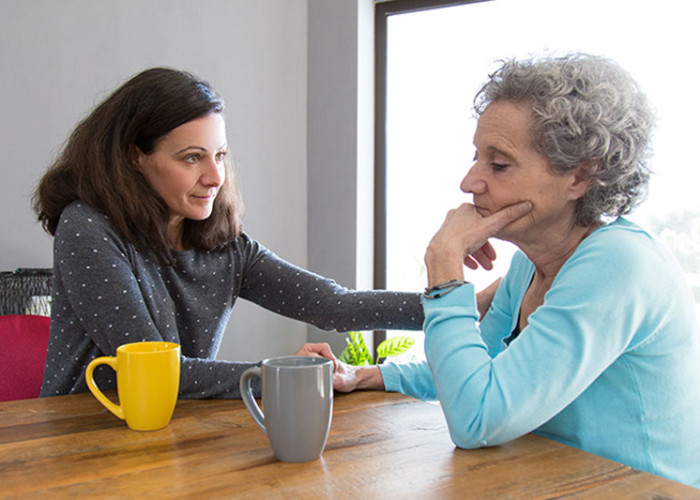Caregiver Support Tip
How to Care for Someone With a Progressive Disease
These tips will guide you in how to care for someone with a progressive disease.
It might have been expected, or perhaps broadsided you without warning. Mom has just received the official diagnosis for a progressive disease that is likely to make independent life difficult. While there are a number of uncertainties, one thing is for sure: she is adamant about remaining at home – meaning you’ll have to learn how to care for someone with a progressive disease.
Welcome to the world of family caregiving! If you’re feeling a bit overwhelmed with what can be expected next, these recommendations will help.
Discover as much as you’re able to about the disease. The older adult’s doctor can provide you with resources and educational materials to help you know what to anticipate and to gain confidence in your caregiving role.
Prioritize … Read More »
4 Ways to Boost Resilience in Older Adults
Discover how to improve resilience in older adults in four simple steps.
Did you ever encounter someone so inspiring that it completely changed your viewpoint on life? It might lead you to pause and wonder what it is about that person that supplies them with the drive and strength to stand out from the crowd. This type of resilience in older adults is especially encouraging, showing us that whatever comes our way, at whatever age, life is beautiful, rich, and fulfilling.
At the Robert N. Butler Columbia Aging Center at Columbia University, research workers decided to examine this further with their “Exceeding Expectations” project. They followed 20 elderly New Yorkers from diversified backgrounds and cultures for a two-year time period. Here is what they learned about the resiliency of these extraordinary individuals.
They never let their obstacles define them. … Read More »
Help Seniors Live Longer and Better Through Finding a Sense of Purpose
Learn how to help seniors live longer and better with these tips.
What inspires you to get up out of bed every morning? The answer is different for every one of us, of course, but there’s one commonality: it could extend your life. Scientific studies are showing us that having a feeling of purpose is a key way to help seniors live longer and better, something evidenced in Japan – the country with the highest life expectancy on earth.
Remarkably, there is no word for our definition of “retirement” in the Japanese language. There is, instead, a concentration on maintaining purpose and meaning beyond a person’s working years and defining themselves according to their current passions and pastimes.
So just how can we help older adults – and ourselves – stay involved in what sparks interest and makes … Read More »
Separate Truths From Myths About Hospice Care
Learn some of the most common myths about hospice care and the true facts about this incredibly beneficial form of care.
If you knew that a significantly better quality of life could be achieved for someone you care about, you would not think twice about exploring that option. Yet one of the most beneficial forms of care – hospice – is one that family members shy away from, due to many different misperceptions and myths about hospice care.
Hospice is meant to help someone with a life-limiting illness find respite from pain and other difficult symptoms, while obtaining comfort as well as spiritual and emotional support. Hospice care is provided night and day, both for the individual needing care as well as family members. And, for anyone covered by Medicare, hospice care is offered for a very low … Read More »
How to Overcome Sleeping Problems in Dementia
Try these tips to help someone experiencing sleeping problems in dementia get a better night’s rest.
If it seems like a senior with dementia has completely rewritten the rules on when and how to sleep, you’re not dreaming. For reasons that aren’t yet fully understood, sleeping problems in dementia are quite common. Changes to the senior’s circadian rhythm lead to drowsy days and sleepless nights.
The development of the disease is one contributing factor. Damage to brain cells causes increased weakness, making everyday tasks and activities exhausting. Medication side effects from commonly-prescribed dementia treatments can further exacerbate the issue.
Why Is a Good Night’s Sleep Crucial for a Loved One with Alzheimer’s?
Decreased sleep quality in dementia may bring about an increase in restlessness and delusions, and can cause serious safety concerns, such as the potential for an … Read More »
How to Be the Best Possible Caregiver
Taking steps to learn how to be the best possible caregiver will improve life in a variety of ways for the person in your care – and yourself.
If someone were providing care for you, how would you want that caregiver/care receiver relationship to look? What qualities would shift that level of care from ordinary to extraordinary? Placing yourself in the shoes of the person in your care is the first step to learning how to be the best possible caregiver – something that will have a lasting impact on both your family member and yourself!
What’s the Best Flu Vaccine for Older Adults?
Learn about the best flu vaccine for older adults and make sure the seniors you love are protected.
While COVID-19 continues to dominate our overall health concerns, it’s important to keep in mind that other illnesses can be equally as dangerous, especially for older adults. Flu season is upon us, and it’s time to make sure that the seniors you love are protected. This starts with knowing the best flu vaccine for older adults.
FREE Money!
Greetings Outstanding Hired Hands Caregivers! As we enter the second half of the year… time is running out!
As a reminder, HIRED HANDS HOMECARE is a proud partner with the state CalGrows program. Together, we are empowering Caregivers, by helping them Learn More and Earn More! Grow your skills and knowledge, allowing you to advance in our profession, while working smarter! And the best part… the CalGrows program will PAY you $30 per hour to take FREE classes, and provide LARGE bonuses for putting your new skills to work with Hired Hands. YE$… you could earn up to $6000, but this program is set to end at the end of the year, so the clock is ticking!
It is SO easy!
1. Visit www.CalGrows.com
2. Choose one of the two Incentive Tracks. Each Track is designed a little differently. A maximum of $2500 can … Read More »
How to Tell the Difference Between Dementia and Medication Side Effects
With so many similarities, can you tell the difference between dementia and medication side effects?
Disorientation. Confusion. Memory loss. While these are certainly hallmark symptoms of Alzheimer’s disease and other types of dementia, they may also come about from taking certain medications. Before automatically assuming an inevitable diagnosis of dementia, review the following list of prescribed medicines that can cause similar adverse effects in order to help tell the difference between dementia and medication side effects.
Caregiver Anger: I Never Expected to Feel So Angry About Caring for Aging Parents!
If you’re feeling angry about dealing with aging parents, know that you’re not alone, and there are steps you can take to help. Contact us for help.
If you were to detail the top 5 emotions you encounter in meeting the caregiving needs of your aging parents, what would they be? Maybe you would first think of emotions like compassion, love, and sometimes, even frustration or stress. Would caregiver anger make the list? In many cases, though family caretakers wouldn’t wish to admit it, it’s quite common to feel angry about caring for aging parents. Read on to learn more about caregiver anger, and reach out to Hired Hands Homecare for the support you need to step away to care for yourself!

















